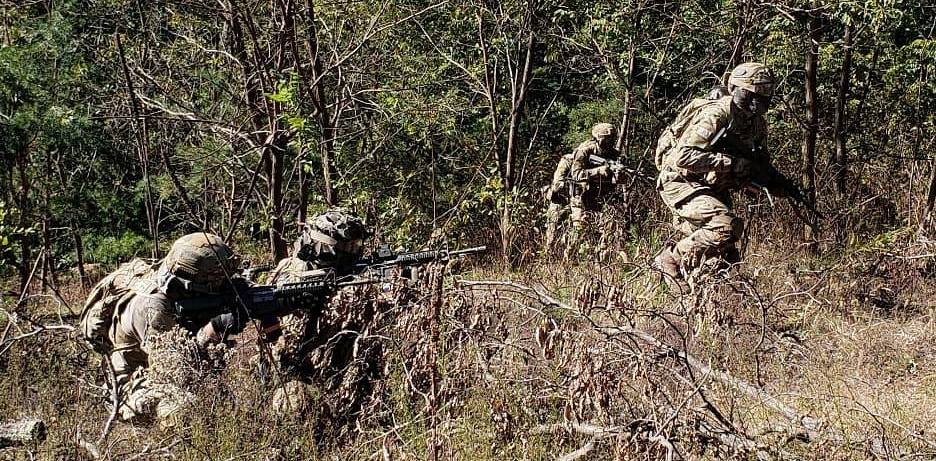Is Tactical Training (i.e. Small Unit Tactics) Important?
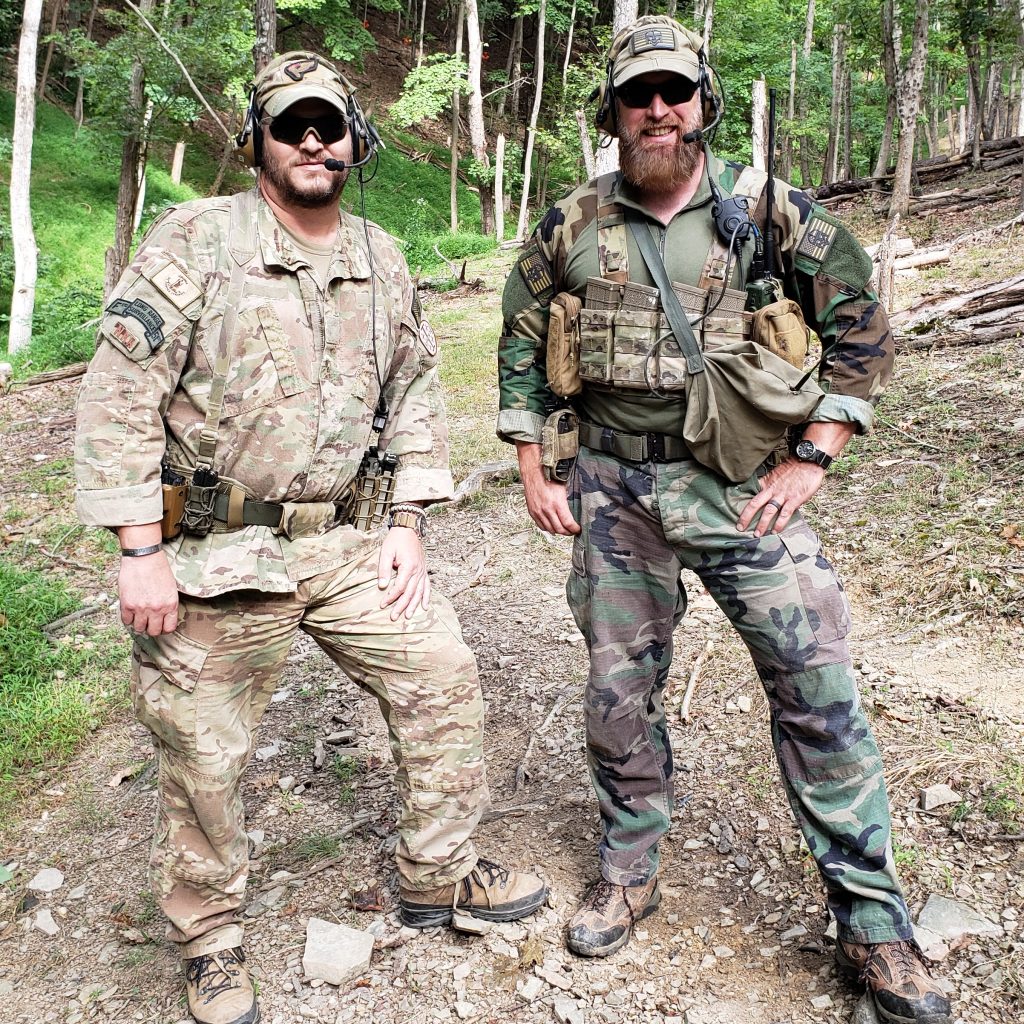
Is ‘tactical training,’ by which I mean Small Unit Tactics (SUT) important? Is it important to a citizen who is preparing himself to be a protector of his kith and kin? Or is it not? Is it simply stuff that former-military professionals such as myself are offering, simply because ‘it’s what we know’? The purpose of this article is to examine that, and the various aspects to the subject.
I am approaching this from the viewpoint that some sort of preparation and training is desirable to be the best protector of your family. That, therefore, is an assumption of this post, as is the ability to purchase and to own firearms. To me, not only is this training essential to your role as a protector, it is also an integral part of the overall ‘warrior mindset’ which makes you who you are as a free citizen. Thus, you should understand on an instinctive level that YOU have the responsibility to be as prepared as you can be, and to set the best conditions, for the safety of your family. I will also tell you that the popular theory of the ‘rugged individual’ is in opposition to that, and you would be best served by a community, which many are now calling a tribe, from which that team of protectors will be recruited.
There is much out there that falls under the broad heading of ‘tactical training.’ Analyzing what is available is essential to understanding whether SUT is important in this game, or not. On the one hand, there is quite a bit in the way of ‘goofy’ SUT out there. This can take many forms, and is generally disappointing. I’m trying to find the best descriptive word for it, and ‘goofy’ may work, as may ‘hokie.’ This is the sort of rubbish that is an excuse for SUT training that I have seen performed by some Militia’s on TV shows, or the sort of tactical training school run by people who do not really have the right background for it, and thus it is taken directly from FMs without being tempered by real training or experience. Frankly, this sort of training is a disaster and thus does little to prepare anyone for a role as a protector. In that sense, if it is only the goofy training that is available, I have answered my own question, and SUT is not important – because it is being done wrong and should be avoided like the plague.
On the other hand we have the flat-range cowboys. These guys do not do any SUT at all. This is the realm of cool-guy shooting and gear, and much in the way of range theatrics. This is often cosplay on the range, with guys trying to mimic costumes, equipment and training of what they see as the cool special-operations guys. One of the reasons that these guys will not do SUT, other than not knowing anything about it, is that they see no need for it. If anything, they have seen the same TV shows that I have seen, and will run away from anything seen as camo-clad militia in the woods.
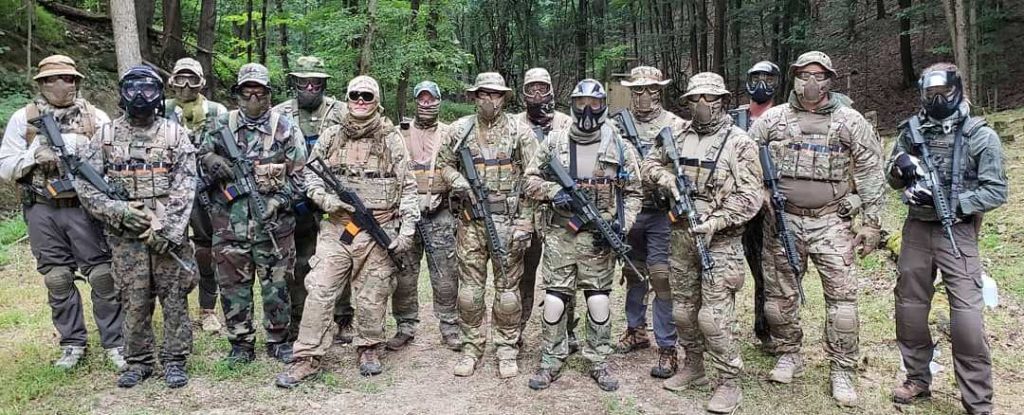
Now, before I go on, I don’t want to have to re-hash some of my other writings about the use of the flat-range, but I may need to summarize here. The flat-range is an essential part of the training progression. It must be done right, and it will lead on to the small unit tactics ranges. Focusing on one side to the exclusion of the other is wrong. It is not only a progression, it is also a cycle, with trainees moving back through the various parts of the training cycle as part of build-up or to prevent skill-fade. Thus, being Militia-Joe playing cosplay in camo in the woods, probably with blank or dry fire, is just as wrong as Operator-Wannabe-Walt playing speed shooting on the flat range at 7 yards from paper targets. A proper training progression will take you through correctly, and focus on what needs to be trained.
However, the whole flat-range training shenanigan is deeper and more worrying that that. It is true that civilian shooting training has informed the military world, but the military world has also informed the kind of training that these guys will try and imitate. Many of the former-military trainers out there focus on this sort of flat-range training to the exclusion of anything SUT-related. There are many reasons for this, such as an easy way to make a living, given that running shoot-fests on flat ranges is generally easy, and popular among the lazy and ignorant masses. Fact is, teaching SUT is an effort, and needs suitable training areas. There is also a reluctance to teach SUT to civilians, due to a statist viewpoint with which I entirely disagree. There are some highly qualified retired trainers, for example several from Delta, the US’s premier special missions unit, who focus their training entirely on basic shooting skills. I am not sure why, and I have considered everything from a simple way to make a living as a retired soldier, to even confidentiality agreements they may or may not have signed.
However, one of the sad things is that we have been at war in the GWOT for the last 20 years. Be very careful of the, for example, ‘Special Operations’ trainer, because you need to know what his actual qualifications and experience are in the realm of teaching SUT, if he even teaches it at all. The sad thing is that many units, through the course of the GWOT, have become focused very narrowly on CQB-style raids to kill or capture persons of interest. This is true for the Ranger Regiment, which is supposed to be the US’s premier light infantry force, as well as many Special Forces or Special Operations units. This is a fact that many will not want to hear, but the ability to conduct true SUT has all but been lost. This has led to a lot of CQB-centric style training, which has resulted in the sort of training that you often see mimicked on civilian flat ranges. It is that ‘operator-style’ training, best summed up by the incessant practice of the ‘operator-transition drill.’ It is very dangerous, because the focus is wrong. The sad thing is that many SOF units will not have conducted SUT on operations. They will have used a lot of cool weapons and firepower, mainly from static positions or convoys. This is probably why the JTAC (Tactical Air Controllers) are held in god-like status, because they are the ones that ‘call for fire.’ This is how the GWOT has been fought by many involved, and it is not teaching great lessons for SUT, in an overwhelming number of cases and experience. I truly worry about the next war, peer-to peer conflict, when we have to go up against a peer adversary in the field. Now, don’t get me wrong, the US military is not devoid of SUT subject matter experts, but they are not the focus, and many are probably retired or nearing retirement now. An art is being lost.
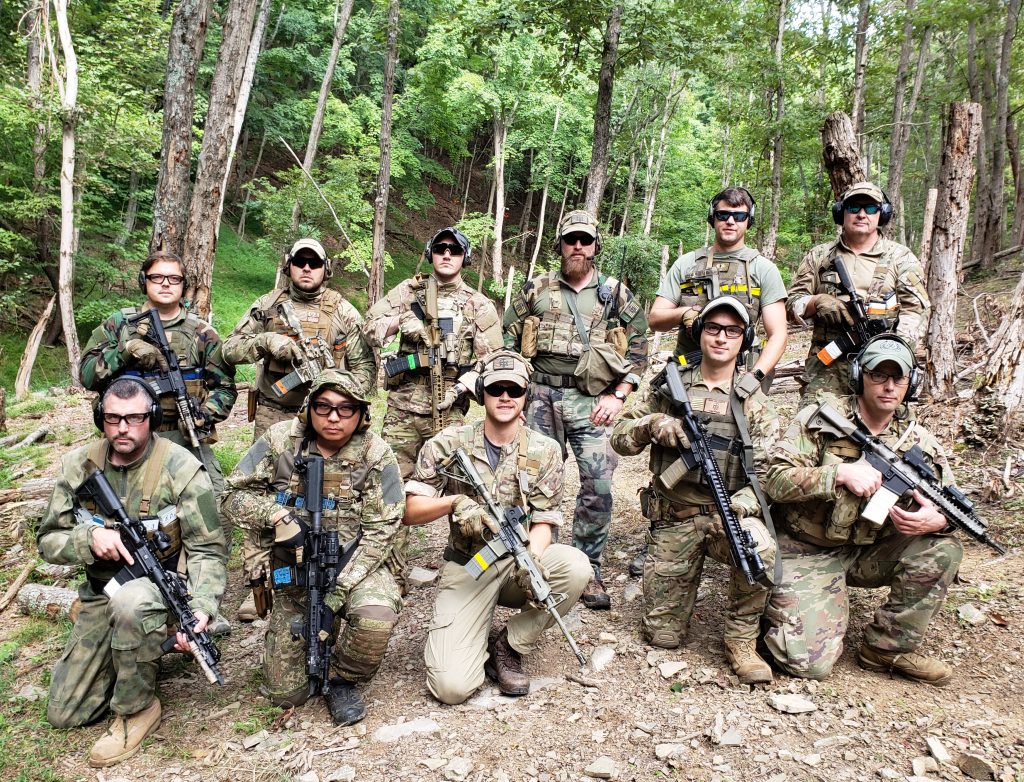
The thing is, you don’t want to be an ‘operator.’ Sure, you need CQB skills, but you need to be able to function as a protector. As an example of this, I had Pat McNamara at my range running a class. Handgun. We were discussing my focus on SUT and my background, and his eyes lit up when I told him of my experience, and he told me that it made sense why I focus on doing what I do. He literally told me that he never did SUT, not that he could remember in recent history (and he’s been retired awhile as well). Why? Because he was in Delta, which is a premier special missions unit. Yes, of course he must have done it, he was a Green Beret before Delta, but that was in misty memory compared to his time doing super-cool guy Delta stuff (no sarcasm) and training for raids to rescue hostages and capture bad-guys. This isn’t supposed to be a criticism of Mac, it’s just a reflection on the training and operational focus of these units, which are unsurpassed in terms of their training and operational ability.
But why does this make any difference? Why train SUT at all? Doesn’t the flat-range stuff teach you all you need to know about shooting bad-guys? Mimicking operator CQB range skills is all you need? The flip side of this is that I have seen a push out there on the interwebz to go against the idea of training SUT. It is easy to see why – you can simply say why train like Militia-Joe out in the woods when you won’t be out there in the woods with your militia when stuff happens. Point out the ridiculousness of running round in your camo pretending to be a soldier. Now, a lot of this comes down to people’s assumptions of what a self-defense situation may look like, and how they will need to be prepared to deal with it. Some want to talk unconventional warfare / irregular warfare, or spy fantasies for when the hammer drops. There is a great deal of misunderstanding out there, a lot of YDKWYDK (you don’t know what you don’t know). Thing is, many get confused that training SUT is the same as being in an infantry company. But SUT skills are in fact a separate thing from the military, and they are the same skills that are taught as the staples of unconventional warfare. At the end of the day it all comes down to SUT, whatever the exact scenario. Raid, ambush, patrolling, reconnaissance are all staples of irregular warfare. In fact, it is supposed to be the role of Special Forces to teach these skills to foreign indigenous troops, to allow them to prosecute guerrilla campaigns. Thus, SUT is a skill separate from being in the regular infantry. This is the same school of foolish thought that cannot understand that it does not matter where you learn your SUT, whether that be in the woods or the desert, because the principles are the same, and thus SUT is simply adapted to the working environment. But let’s also not forget that often, this push-back against the essential nature of SUT is often simply due to denial, laziness, and the refusal to do the hard work. People are pretty dumb, overall, and will seek excuses to not do the heavy lifting.
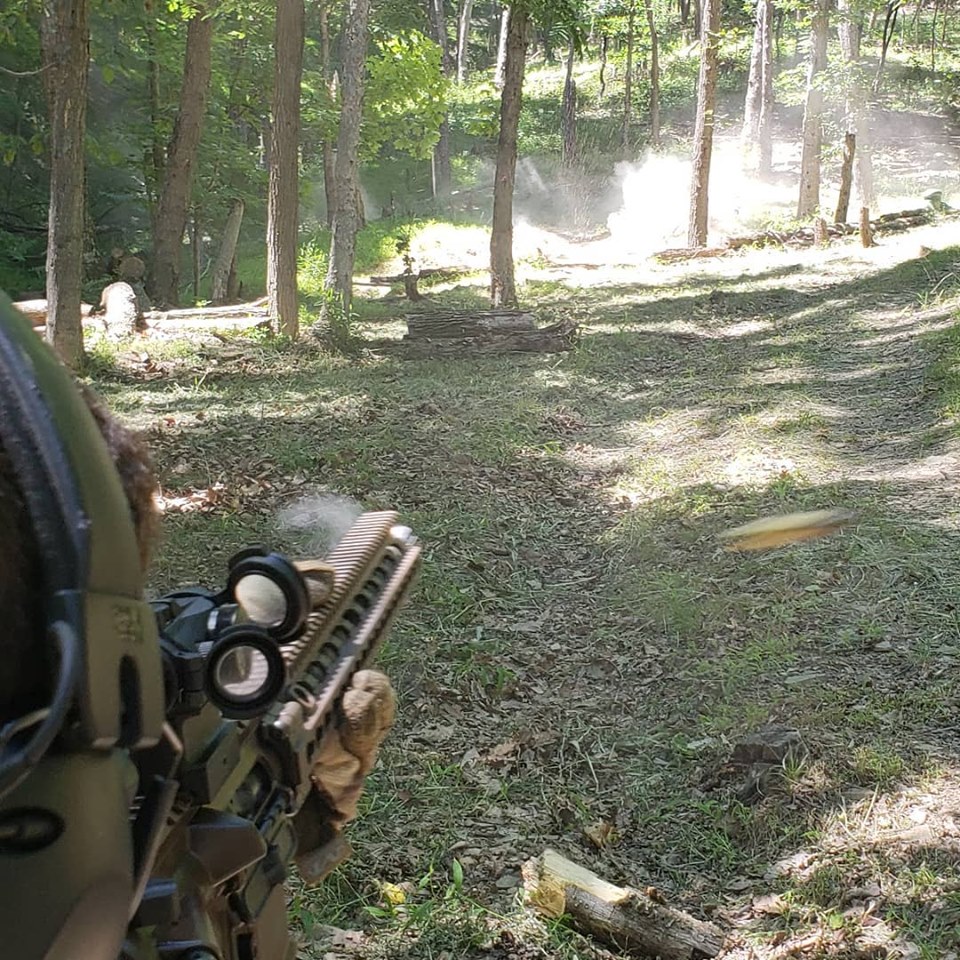
But yet, what will SUT give you? SUT will teach you the essentials of ‘shoot, move and communicate.’ These skills are not easy to learn and to put together on a way that will work for you in combat. The hardest is communicate. SUT will teach you situational awareness and give you an amount of combat inoculation, that will make it easier to operate when the emergency is in progress; it will make you less susceptible to freezing, tunnel vision, and make it easier for you to get your gun up and into the fight, which is an essential part of surviving. It will teach you teamwork, leadership, decision-making (both planning and when the fight is on). It will teach you to operate as a member of a team and also give you skills which will help you survive if you happen to be caught on your own. It will teach you the essential requirement for physical fitness. The bottom line is that if you have any of the warrior-mindset in you, any part at all, you will instinctively understand this. This is key to becoming a protector , and if you wish to succeed as one then you will instinctively know that you need to progress to SUT to develop essential skills and experience. SUT is built from a progression of flat-range skills-work, moving to live fire tactical ranges, and bringing it together with force on force simulated combat missions. This will challenge you and better you as a person, as you invest in yourself and improve your abilities as a protector. It’s also great, challenging, fun.
Hitting targets on the flat-range is like hitting the heavy bag. Running tactical live-fire ranges is like doing pad-work. Running scenario based force on force training is like sparring. After that, there is only combat if it should befall you. Be careful what you wish for. The sum of this training progression is an overall better and fitter protector, whose situational awareness will circle back and benefit him in any self-defense situation by hugely increased situational awareness.
SUT will give you the benefits on an individual and team level of the holistic approach to self-defense. However, what if you don’t have a team? Well, even as a lone trooper you will do better after training, if caught on your own, than without it. However, at the beginning of the article I talked about community (or tribe) – this is essential to survival. It is also one of the biggest challenges that any protector has – finding suitable quality people from the vast majority of the savages. People are weak and lazy, and it is sifting through that, and building team out of the quality ones, that is the hardest of all. This is why we have the MVT Forum, and why we encourage you to use it to network. This is why we have the alumni and Team Rekkr forums to allow you to find people that have at least been vetted by the MVT cadre as decent folks.
I never said any of this was going to be easy. Learning SUT is essential, but it is not the whole story in terms of building a team that can effectively roll it out in a self-defense emergency. If you think you are going to be an effective protector, but you have not trained effectively at SUT, then you are in denial and kidding yourself. There are many out there who are suffering from YDKWYDK, the porch-snipers and guys who purchase firearms but have no idea what to do with them. There is a whole cultural stupidity based on false untested egos and the idea that guys will rise to the occasion when they need to, that every man is a rifleman. Truth is, you will fall to the level of training that you have. And if you have no physical fitness, you won’t be able to breath and you won’t be able to fight. Most people are living in a fantasy land. The worst part is, that after the election of Trump, we fell into a sleep cycle known as the ‘Trump Slump’ where the usual ‘fear-based’ preppers went back to sleep, are not training and are not even buying firearms. The whole thing about Obama being the ‘best gun salesman’ shows the stupidity of people – disaster can happen at any time and you can’t suddenly start preparing when you feel the fear. Developing the warrior mindset is a process that must be worked at and cannot be turned on and off depending on your level of political fear. You are either a warrior, or you are a sheep.
If you think this article is a little harsh, it’s nothing compared to your potential failure when you and your family are being overrun by hostiles. Because you wouldn’t put the the time into effective physical and tactical training, you isolated your family due to paranoia and made no effort to find a team.
For the warriors out there, MVT is here for you. We run real, professional tactical and SUT training. The mission of MVT to keep the art of SUT alive, in order to be able to teach you.
